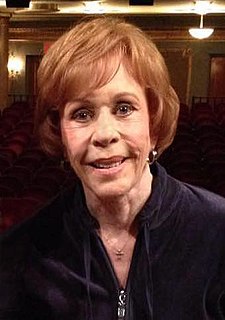A Quote by Carol Burnett
Words, once they are printed, have a life of their own.
Related Quotes
Life knows us not and we do not know life—-we don’t know even our own thoughts. Half the words we use have no meaning whatever and of the other half each man understands each word after the fashion of his own folly and conceit. Faith is a myth and beliefs shift like mists on the shore; thoughts vanish; words, once pronounced, die; and the memory of yesterday is as shadowy as the hope of tomorrow
When we read, we are not looking for new ideas, but to see our own thoughts given the seal of confirmation on the printed page. The words that strike us are those that awake an echo in a zone we have already made our own—the place where we live—and the vibration enables us to find fresh starting points within ourselves
If you know that everything comes from the mind, don't become attached. Once attached, you're unaware. But once you see your own nature, the entire Canon becomes so much prose. It's thousands of sutras and shastras only amount to a clear mind. Understanding comes in midsentence. What good are doctrines? The ultimate Truth is beyond words. Doctrines are words. They're not the Way. The Way is wordless. Words are illusions. . . . Don't cling to appearances, and you'll break through all barriers. . . .
Bound to seek recognition of its own existence in categories, terms, and names that are not of its own making, the subject seeks the sign of its own existence outside itself, in a discourse that is at once dominant and indifferent. Social categories signify subordination and existence at once. In other words, within subjection the price of existence is subordination.
For we let our young men and women go out unarmed in a day when armor was never so necessary. By teaching them to read, we have left them at the mercy of the printed word. By the invention of the film and the radio, we have made certain that no aversion to reading shall secure them from the incessant battery of words, words, words. They do not know what the words mean; they do not know how to ward them off or blunt their edge or fling them back; they are prey to words in their emotions instead of being the masters of them in their intellects.



































